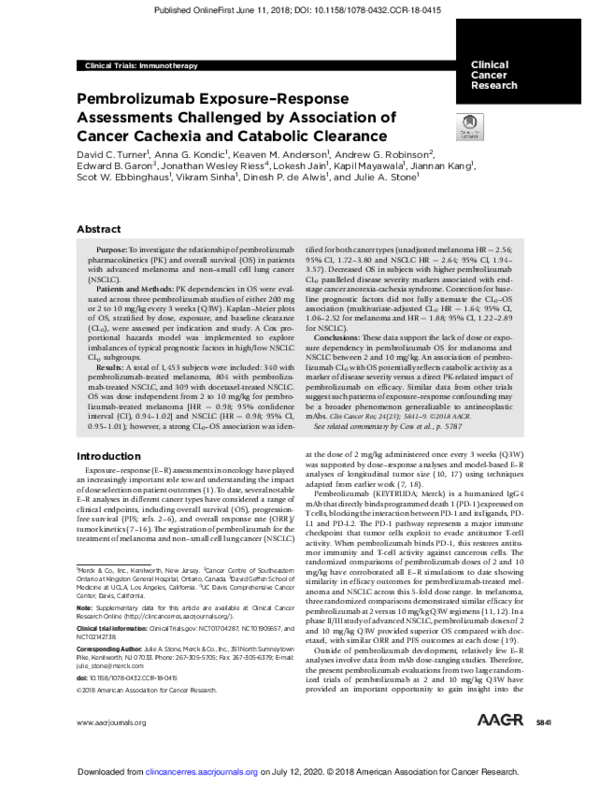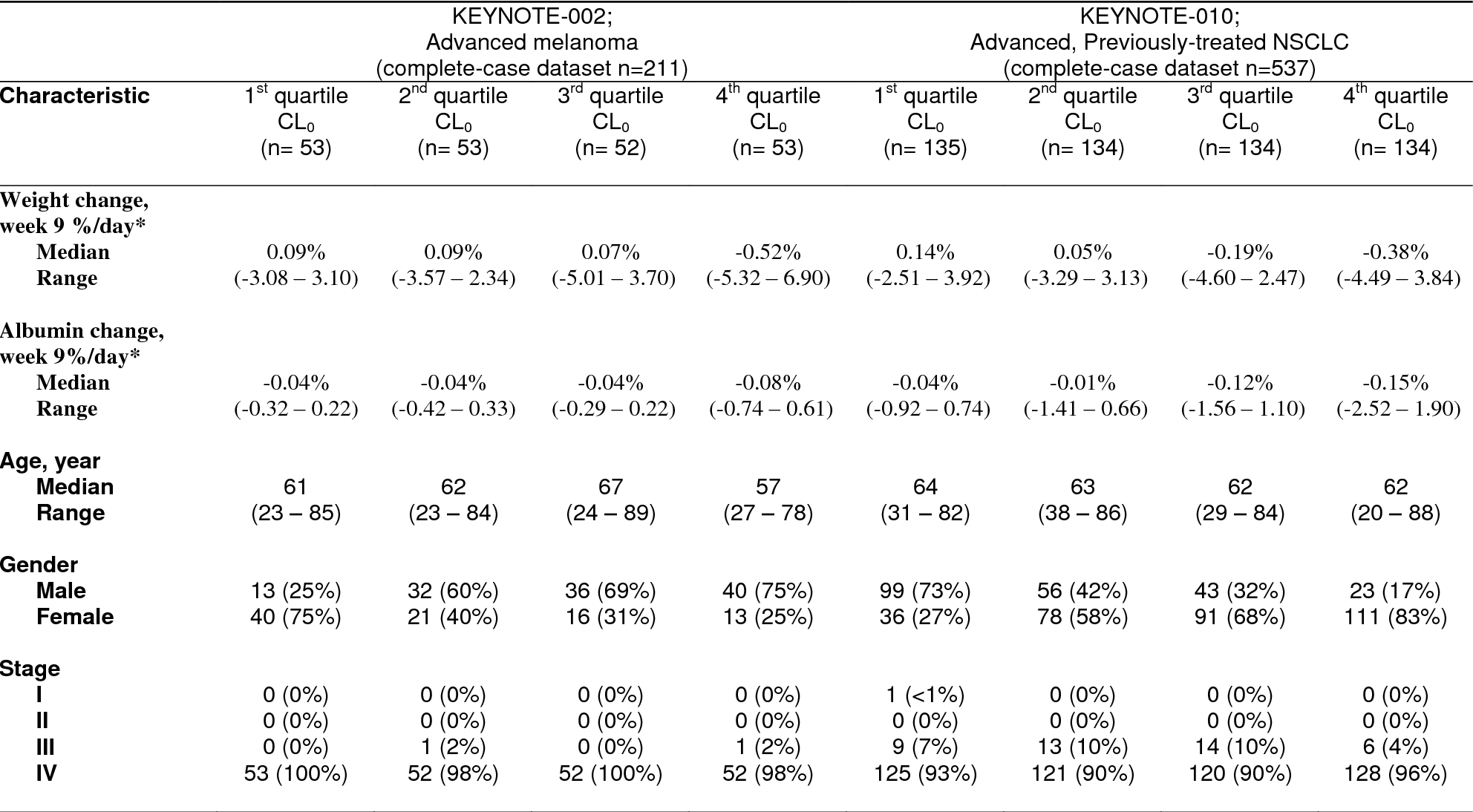Well, ya see, there’s this medicine called pembrolizumab. It’s a big word, ain’t it? But folks call it by its shorter name, ‘pembro.’ Now, let me tell ya, pembro’s been used in treating all sorts of cancer, especially melanoma and lung cancer. It works by messin’ around with the immune system. Normally, our body’s defense system, the immune system, has a way of lettin’ our cells stay in check so they don’t go around attackin’ the good stuff. But cancer cells, well, they can fool the immune system, making it turn a blind eye while the cancer grows. Pembro helps stop that trickery by blockin’ a protein called PD-1, which is like a stop sign for the immune system.
So, you might think, well, if this stuff works so good, it must be easy to figure out how much folks need, right? But nope, things ain’t that simple. See, the doctors been lookin’ at how much of the medicine gets into the body—this is what they call ‘exposure’—and how well it works, like, whether it helps people live longer or not. Now, this idea seems pretty straightforward at first, but there’s a bit of a hiccup that’s been botherin’ the scientists. There’s something called cancer cachexia, which is just a fancy word for when a person loses a lot of weight and muscle from cancer. This condition messes up the whole balance and throws a wrench in the works.
In a study with folks who had melanoma, they found out that 35% of them got a real good response to pembro, but here’s the thing—when you’ve got that cancer cachexia hangin’ around, it messes with the way pembro works. See, the body’s clearance rate, which is how quickly it gets rid of the medicine, can change. In folks who are more sick or weak from the cancer, their bodies can clear the medicine faster or slower than expected. And that throws off the usual calculations they’ve been usin’ to figure out the right dose for each person.
Now, they’ve been tryin’ to figure this all out, but it ain’t easy. You see, the medicine’s supposed to stick around in the body long enough to fight the cancer, but if it clears too quick, it might not have enough time to do its job. On the other hand, if it stays too long, it could cause side effects. That’s a real fine line to walk, and with cancer cachexia, things get real tricky.

Now, doctors have been doin’ their best to measure this exposure-response thing. They’ve been givin’ doses from 1 to 10 milligrams per kilogram of body weight, usually every two or three weeks. But because of this cachexia problem, it’s been hard to figure out the perfect dose for everyone. Some folks might need a little more or a little less, dependin’ on how their bodies are handle it. That’s where it gets complicated, and that’s what the scientists are tryin’ to fix.
To make things even harder, different cancers and different stages of cancer behave differently. What works for one person might not work for another, and the same goes for the doses. Some folks might have a longer survival rate, while others, despite the medicine, might not get as much benefit. And all this is made even harder by things like other health problems or treatments the patient’s been gettin’.
But don’t get me wrong, pembrolizumab is still a powerful tool in the fight against cancer. It’s just that folks are still tryin’ to figure out exactly how to use it in the best way. That’s why studies are still goin’ on. They’re tryin’ to learn more about how the medicine moves around in the body and how it affects the cancer.
There’s also a lot of talk about how pembro’s effect on the body isn’t just about how much you take, but how it works with your body’s natural defenses. If someone’s immune system is strong and workin’ right, they might have a better response to the treatment. But if the body’s weak or worn down, the medicine might not work as well. It’s a real tricky thing to figure out.
In the end, what all this means is that when you’re talkin’ about pembrolizumab and how it works, there’s more to the story than just the dose. The way the body handles it, the condition of the patient, and other factors all play a big part. And until they can sort out all these little details, doctors will just have to keep a close eye on each patient and adjust things as needed. It’s a lot of trial and error, but they’re gettin’ there, slowly but surely.

So, if you or someone you know is takin’ pembrolizumab for cancer, don’t be discouraged if it takes a little time to get the dose just right. The doctors and scientists are workin’ hard to make sure it helps as much as possible. It’s a long road, but with the right care, it can lead to better days ahead.
Tags:[Pembrolizumab, Cancer Treatment, Exposure-Response, Cancer Cachexia, Immune System, Melanoma, Lung Cancer, Pharmacokinetics, Survival, Oncology]









